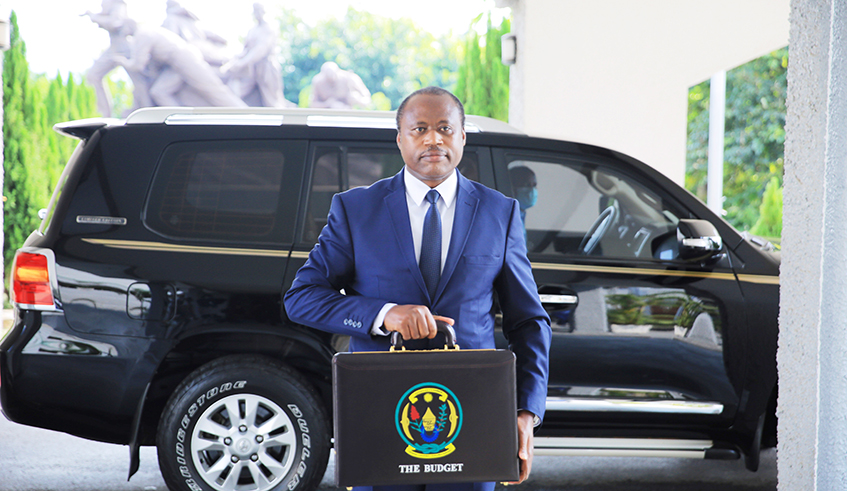

The plenary sitting of the Chamber of Deputies adopted the amendment of the law determining the state finances for the 2021/2022 fiscal year, hence adopting the Rwf4,440.6 billion revised national budget that was tabled by government last week.
The budget approved on Tuesday, February 15, implies an increase of 16.6 percent (Rwf633.6 billion) compared to the Rwf3,807 billion in the original budget which had been adopted by Parliament in June 2021.
On the sources of financing, it is expected that domestic revenues will increase by Rwf155 billion from the earlier projected Rwf1,993 billion in the original budget to Rwf2,148 billion.
This, according to the Ministry of Finance and Economic Planning, is attributed to additional taxes and other revenues expected following the recovery of economic activities [from the Covid-19 impact].
Tax revenue is projected to increase by Rwf42.4 billion or 2.4 percent from Rwf1,717.2 billion projected in the original budget to Rwf1,759.6 billion. Non-tax revenue will increase by Rwf112.6 billion or 40.7 percent from Rwf275.8 billion to Rwf388.2 billion.
Grants are projected to increase by Rwf25.4 billion from Rwf612.2 billion in the original budget to Rwf637.6 billion.
For loans, they are expected to increase from Rwf651.4 billion to Rwf1,469.7 billion on the account of Eurobond as well as resources to combat the effects of Covid-19.
Regarding capital expenditure, the original budget has been increased by 19 percent (or Rwf262.4 billion) to Rwf1,655.7 billion.
Some government entities that were not appropriated in the initial budget, were allocated finances during the budget revision. They include the Rwanda Atomic Energy Board (RAEB, the Minister of Interior, the Embassy of Rwanda - Republic of Central Africa, and the Ministry of National Unity and Civic Engagement (MINUBUMWE).
MP Omar Munyaneza, the Chairperson of the Committee on National Budget and Patrimony said that the Committee members found rational the reasons that were provided by the Minister of Finance and Economic Planning for budget allocations to different public entities.
The factors that determined the allocations were mainly raising funding to bridge gaps in civil servants' salaries, and stepping up the fight against the impact of the Covid-19 pandemic, among others.
On the expenditure front, the Government projects the recurrent budget to increase by 15.3 percent (or Rwf371.2 billion) from Rwf2,413.7 billion in the original budget to Rwf2,784.9 billion.
The development budget increased by 18.8 percent (or Rwf262.4 billion) to Rwf1,655.7 billion from Rwf1,393.3 billion in the initial financial plan.
«We realised that the development budget increased compared to the recurrent one, which is an indication of attaching importance to projects that improve the livelihoods of people, » Munyaneza said.
Filling funding gaps
During the budget analysis in June 2021, the Chamber of Deputies identified 173 urgent funding gaps that required Rwf311.2 billion in the current fiscal year.
In the budget that was adopted in June last year, only Rwf41.4 billion was allocated to help fill 19 gaps.
Munyaneza said that the Minister of Finance and Economic Planning indicated to the members of the Committee on National Budget and Patrimony that there was progress on addressing the remaining funding gaps.
He pointed out that the budget revision resulted in allocating Rwf159 billion to address 115 financing gaps.
Overall, the finances that have been provided to help fill the gaps that were exposed by the Chamber of Deputies in June last year amount to Rwf160 billion (covering 134 gaps). This represents 51.4 of the total funding of Rwf311.2 billion that was required to fill 173 gaps that were indicated.
Munyaneza said that the remaining 39 gaps are expected to be addressed in the next fiscal year 2022/2023, and Medium Term Expenditure Framework (MTEF).


